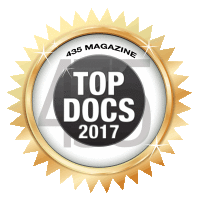By Dr. Poonam Khanna, D.O./Child and Adolescent Psychiatrist
ADHD can be extremely hard to manage and treat without the intervention of medications. Symptoms of hyperactivity are best controlled with a combination of appropriate medication and behavioral therapy. Medications cannot “cure” ADHD, but they do help control symptoms and make them more manageable.
It will be important to talk to your doctor about your child’s individual behavioral and cognitive problems, as each person’s ADHD profile is different. Your doctor will be able to determine appropriate dosage and schedule for your child’s unique needs.
Stimulants
Although it seems counterintuitive, stimulants can help calm hyperactivity and allow your child to pay attention and accomplish singular tasks without distraction. A wide variety of stimulants exist, with approval varying by age. Usually when children benefit from stimulants, they will also benefit from them as teenagers and adults.
Stimulants that are effective in treating ADHD include:
- Adderall
- Adderall XR
- Ritalin
- Concerta
- Methylin
- Focalin
- Vyvanse
- Dexedrine
- Metadate
If you have questions regarding the type, dosage or schedule of your child’s ADHD medication, schedule an appointment to talk with your doctor. The correct treatment regimen is paramount for successful treatment of ADHD symptoms.
Non stimulants
Although stimulants are believed to work in more than 50 percent of ADHD cases, some patients experience negative side effects or not see much improvement in symptoms. Because every child is different, some might benefit more from taking non stimulants. The first of this type of medication approved by the FDA was Strattera, and Intuniv has also been approved for patients ages 6–17.
Other options
In rare cases when neither stimulants nor nonstimulants effectively treat your child’s ADHD symptoms, other medications exist that could help. Ask your doctor about other options if your child’s current ADHD medication isn’t working or is giving him or her unpleasant side effects.
Possible ADHD medication side effects:
- Decreased appetite or weight loss
- Sleep problems
- Headache
- A sense of being shaky or jittery
- Stomachaches
Tell your doctor if your child experiences any of these side effects. Typically, they can be lessened or eliminated completely by changing dosage, schedule or the medication itself. Don’t make these decisions by yourself; a medical professional will be able to make any necessary adjustments safely.
Abnormal ADHD medication side effects
Make sure you ask your doctor about all the risks associated with ADHD medication, and he or she will help you determine which will be most effective for your child.






